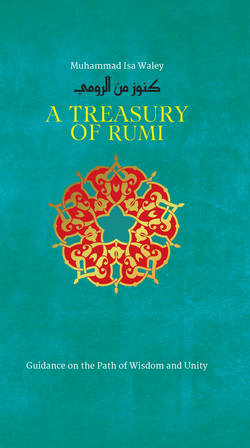Читать книгу A Treasury of Rumi's Wisdom - Muhammad Isa Waley - Страница 10
На сайте Литреса книга снята с продажи.
Оглавление1
Back to our Origins
Listen to this reed, how it tells its story Complaining of the partings it has suffered.
‘Ever since I was first cut from the reed-bed,
Men and women have moaned with my lamenting.
I need a bosom rent by parting’s sorrow In order to express the pain of longing.
For anyone left far away from his source Misses the days when he was at one with it.
I’ve played my mournful notes in every gathering,
Consorting with the unhappy and the joyful.
All have become my friends – in their opinion;
But they’ve not sought out the secrets within me.
My secret’s not far from my lamentation;
But ears and eyes have not the light to learn it.’
Body’s not veiled from soul, nor soul from body;
But to see souls nobody has permission.
The cry of the reed-flute’s not air, but fire. May all who lack that fire come to nothing!
It is the fire of Love that’s in the reed-flute;
What permeates wine is Love’s fermentation.
The reed’s a friend to those cut off from their Friend;
Its melodies tear down our veils, our ailments.
(M I, 1–11)
Although the format of the Treasury series necessitates that the selections be brief, it would be hard to do without the opening couplets of the MathnawÏ, in which the poet presents the key themes of his masterpiece. These lines have been expounded by some distinguished authors, and the comments that follow contain little, if anything, that is original. Here one can only point to a few of the main points; readers may find further guidance in the works recommended in this book.
Mawl¥n¥ R‰mÏ begins the prose preface to Daftar (Volume) I of the MathnawÏ in the normal manner, with the Basmala formula (‘In the Name of Allah, the Infinitely Good, the Most Merciful’). The opening verses are unusual in that they begin instead with the word ‘Listen’ (or ‘Hear’: Bishnaw).
‘This reed’: a nay or stout reed is traditionally used in making two kinds of instruments of communication: pens and flutes. In either case a slit needs to be made at the front, for the passage of ink or of breathed air. The rending of garments is a gesture of grieving. (Music is a contentious matter among Muslims. R‰mÏ may have been, and his later successors certainly were, among those religious scholars who deemed the use of certain kinds of instrument lawful in spiritual gatherings.)
The reed laments being parted from its original home, and this echoes the human situation: in this world we are in exile from our true homeland in the Divine Presence. Very early in the history of the MathnawÏ, copyists began to change ‘this reed’ to ‘the reed’, considering that an improvement; but the former is the correct reading and highlights the fact that the author is also speaking of himself and asking others to listen to his tale.
‘May all who lack that fire come to nothing!’ ‘That fire’ is the fire of love, and the fire of yearning for one’s Beloved and one’s home. What may sound like a most unfriendly imprecation is in fact a prayer for goodness for all: what prevents people from one having that love and longing is self-centredness, and the best thing that can happen to us is for our egos to be dissolved and ‘come to nothing’ in love for the Divine. This is how R‰mÏ introduces the key theme of his masterpiece.
